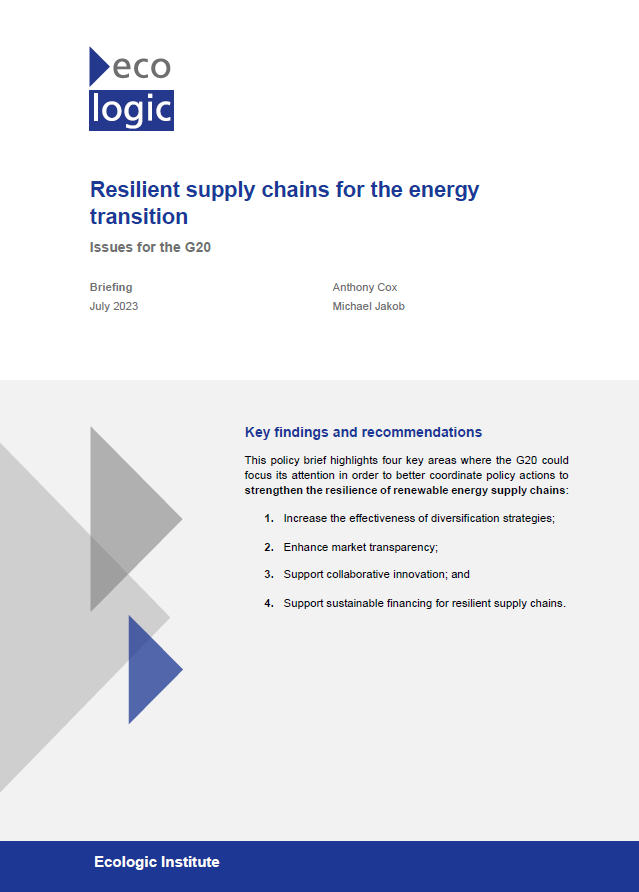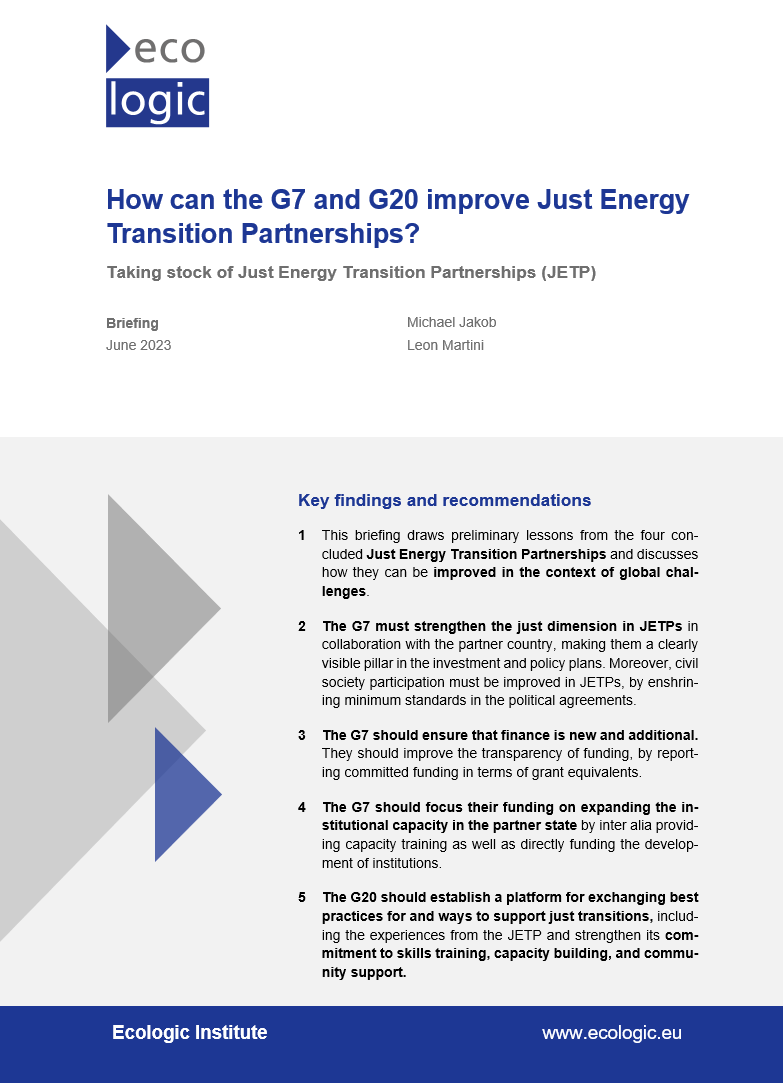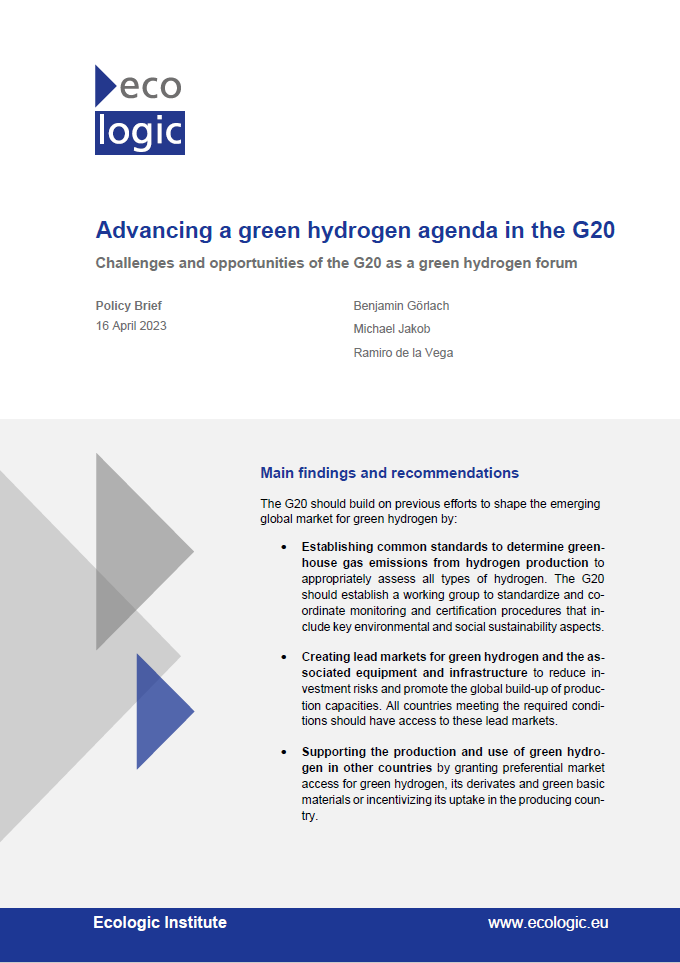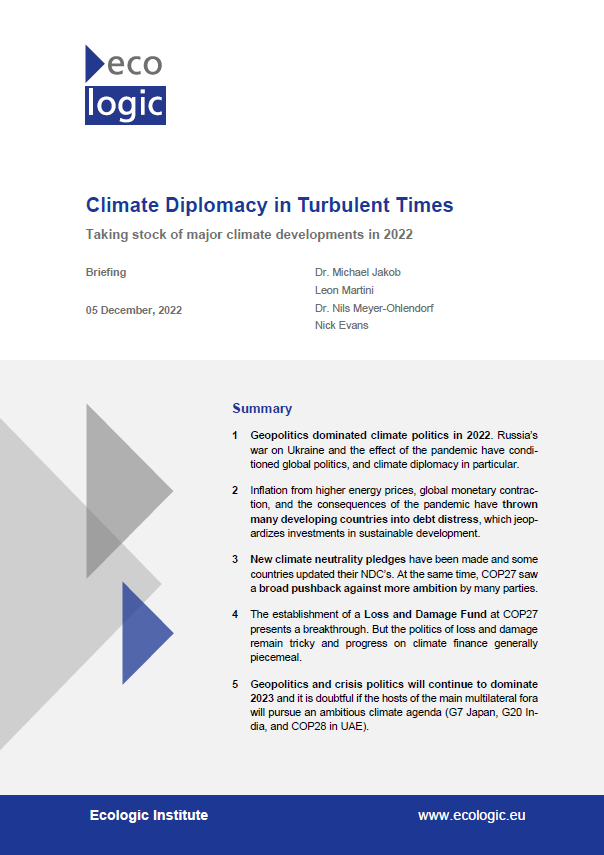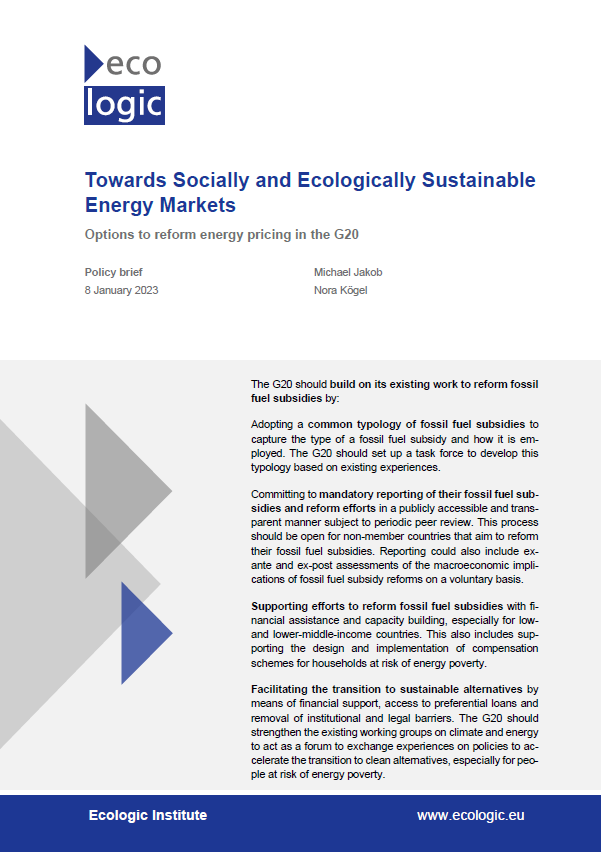Publication:Policy Brief
Related content for project "G7 and G20 Climate Policy: Exchange with Key Stakeholders " (project ID 30018)
Publication:Policy Brief
How Can the G7 and G20 Improve Just Energy Transition Partnerships?
Taking stock of Just Energy Transition Partnerships (JETP)
Year
Read morePublication:Policy Brief
Advancing a Green Hydrogen Agenda in the G20
Challenges and opportunities of the G20 as a green hydrogen forum
Year
Read morePublication:Policy Brief
Climate Diplomacy in Turbulent Times
Taking stock of major climate developments in 2022
Year
Read morePublication:Policy Brief
Towards Socially and Ecologically Sustainable Energy Markets
Options to reform energy pricing in the G20
Year
Read more